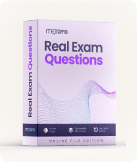Test Prep NAPLEX - North American Pharmacist Licensure Examination Exam
Page: 2 / 31
Total 154 questions
Question #6 (Topic: Topic 1)
Which of the following is true regarding extent of absorption of drugs?
A. After oral ingestion of drugs, the absorption of drug may be incomplete
B. Drugs which are too lipophilic cannot cross the lipid cell membrane
C. Drugs which are too hydrophilic are not soluble enough to cross the water layer adjacent to the cell
D. P-glycoprotein is an efflux transporter which is present in the enterocytes and it enhances the absorption of drug
E. Grape juice activates P-glycoprotein leading to substantial inhibition of absorption of drugs
Answer: A
Question #7 (Topic: Topic 1)
Your patient is a 58-year-old male who presents with onset of severe substernal chest pain and shortness of breath. An ECG reveals an acute STEMI, and he is
on his way to the cardiac catheterization suite for percutaneous coronary intervention.
Which of the following drugs used in acute coronary syndromes treated with PCI must undergo oxidation by hepatic P450 enzymes to an active form?
on his way to the cardiac catheterization suite for percutaneous coronary intervention.
Which of the following drugs used in acute coronary syndromes treated with PCI must undergo oxidation by hepatic P450 enzymes to an active form?
A. Clopidogrel
B. Ticlopidine
C. Eptifibatide
D. Aspirin
E. Warfarin
Answer: A
Question #8 (Topic: Topic 1)
A patient with multibacillary leprosy is on dapsone, clofazimine, and rifampin. Which of the following is true regarding the mechanism of action of the medications
listed?
listed?
A. Dapsone is bacteriostatic because of its inhibitory effects on dihydrofolate reductase
B. Dapsone is bacteriostatic because of its inhibitory effects on myeloperoxidase
C. Clofazimine is bactericidal by directly inhibiting bacterial DNA polymerase
D. Rifampin is bacteriostatic by inhibiting RNA synthesis by blocking DNA-dependent RNA polymerase
E. Rifampin is bactericidal by inhibiting RNA synthesis by blocking DNA-dependent RNA polymerase
Answer: E
Question #9 (Topic: Topic 1)
You prescribe doxepin to a 37-year-old woman to treat neurotic excoriations on her arms. The patient is concerned about the side effects of this drug. Which of the
following is not a side effect of doxepin:
following is not a side effect of doxepin:
A. Xerostomia
B. Liver toxicity
C. Somnolence
D. Urinary retention
E. Constipation
Answer: B
Question #10 (Topic: Topic 1)
Which of the following illnesses is an example of a type III hypersensitivity reaction?
A. Lupus
B. Graves disease
C. Hashiomoto’s thyroiditis
D. Allergic rhinitis
E. Myasthenia gravis
Answer: A
